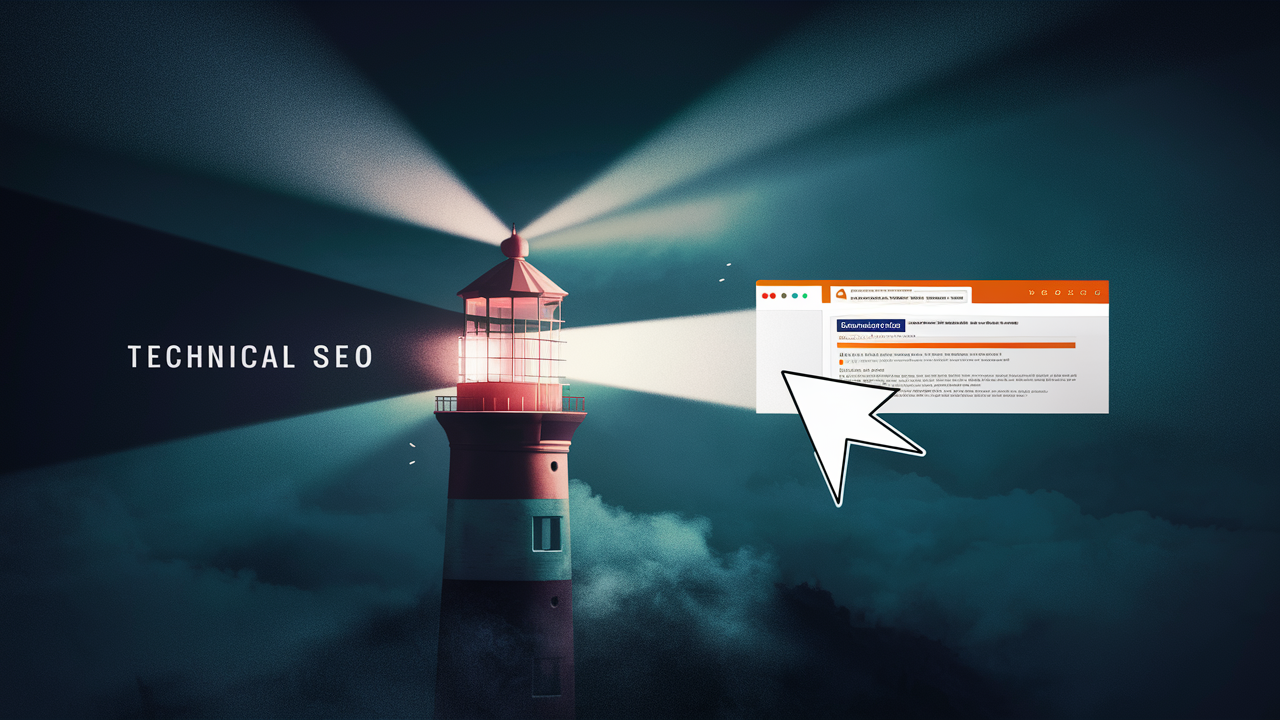
Ecommerce SEO in 2024: Your Step-by-Step Guide to Ranking Higher & Exploding Sales
- fyerx
- April 25, 2024
- Blog
- Digital marketing, Digital marketing agency, ecommerce marketing, ecommerce seo, Marketing
- 0 Comments
In today’s booming world of online shopping, where competition is fierce, ecommerce SEO (Search Engine Optimization) is the key to unlocking explosive growth for your online store. It’s the art and science of optimizing your website to rank higher in search engine results pages (SERPs) for relevant keywords. This translates to more organic traffic, increased sales, and ultimately, a thriving online business.
So, what exactly is ecommerce SEO? Simply put, it’s a strategic approach to making your online store discoverable by potential customers who are actively searching for products like yours. When someone types in a search query related to what you sell, like “best running shoes for women” or “eco-friendly cleaning products,” you want your store to be among the top results they see.
Why is SEO for Ecommerce Websites Crucial?

There’s a compelling reason why ecommerce SEO should be a top priority for your online business:
- Increased Traffic and Sales: The higher you rank in search results, the more people will see your website. This translates directly to more website visitors, which translates to more potential customers and ultimately, more sales. Studies show that organic traffic converts at a much higher rate compared to other sources like paid advertising.
- Enhanced Brand Awareness: By consistently ranking for relevant keywords, you establish your brand as a trusted authority in your niche. This builds brand recognition and credibility, leading to increased customer loyalty and repeat business.
- Cost-Effective Marketing Strategy: Unlike paid advertising, where you pay for each click, SEO is a long-term investment that delivers organic traffic over time. It’s a cost-effective way to reach your target audience and drive sustainable growth for your online store.
Who Needs Ecommerce SEO?
The answer is simple: All Ecommerce Businesses. Whether you’re a small startup or a well-established online retailer, implementing a solid ecommerce SEO strategy is essential for success.
Now, let’s dive deeper into the key elements of an effective ecommerce SEO strategy:
1. Ecommerce SEO Strategy: Building a Roadmap to Success

The foundation of your ecommerce SEO journey lies in crafting a well-defined strategy. Here’s what you need to consider:
- Keyword Research: This is the cornerstone of your SEO efforts. It involves identifying keywords that potential customers are actively searching for when looking for products like yours. Think about the terms people would use to find your products online. Tools like Google Keyword Planner, Ahrefs, or SEMrush can help you uncover high-volume, low-competition keywords.
- On-Page Optimization for Ecommerce Websites: On-page SEO focuses on optimizing the elements within your website to improve search engine ranking and user experience. This encompasses several aspects:
- Product Page Optimization:
- Headings and Titles: Include your target keywords in your product titles and H1 headings.
- Product Descriptions: Craft compelling and informative descriptions that incorporate your target keywords naturally. Highlight product features and benefits, addressing user pain points.
- High-Quality Images: Use high-resolution product images from various angles and include relevant alt text descriptions containing your keywords.
- Structured Data Implementation: Implement schema markup to provide search engines with richer information about your products, such as price, availability, and brand.
- Category Page Optimization:
- Category Titles & Meta Descriptions: Optimize category pages with relevant keywords and engaging descriptions to entice users to click through.
- Internal Linking: Strategically link to relevant product pages within each category.
- Blog Content Creation: Developing a blog with informative and engaging content is a powerful on-page SEO tactic.
- Target Long-Tail Keywords: Focus on long-tail keywords (more specific search phrases) that indicate higher purchase intent.
- Create Valuable Content: Publish high-quality blog posts that address user needs and buying considerations related to your products.
- Optimize for Readability: Ensure your content is well-structured, easy to read, and uses proper formatting.
- Product Page Optimization:
2. Off-Page SEO for Ecommerce Websites:
While on-page SEO focuses on optimizing your website, off-page SEO strategies focus on building your website’s authority and trust in the eyes of search engines. This is primarily achieved through:
- Link Building: Earning backlinks (links from other websites to yours) is a crucial element of off-page SEO. Backlinks signal to search engines that your website is a valuable resource, influencing your ranking position.
- Guest Blogging: Contribute guest articles to relevant websites within your niche, including a link back to your website.
- Industry Awards and Recognition: Secure mentions and awards from industry publications or organizations, often accompanied by backlinks.
- Social Media Engagement: Utilize social media platforms to promote your content and website, fostering brand awareness and potentially attracting backlinks.
- Social Media Marketing: Integrate social media into your overall SEO strategy. Share your blog content, product updates, and engage with your audience on social platforms. This drives traffic back to your website and indirectly improves search engine ranking.
3. Technical SEO for Ecommerce Websites:
Technical SEO ensures your website is crawlable and user-friendly for both search engines and visitors. Here are some key aspects:
- Mobile-Friendliness: In today’s mobile-first world, your website must be optimized for mobile devices. Google prioritizes mobile-friendly websites in search results. Ensure your website offers a seamless browsing and buying experience on smartphones and tablets.
- Page Speed Optimization: Website speed is a crucial ranking factor. Optimize your website for faster loading times by optimizing images, reducing code bloat, and utilizing a reliable web hosting service.
- Website Navigation and User Interface: Your website should be well-structured and easy to navigate. Clear menus, intuitive search bars, and internal linking structures will improve user experience and keep visitors engaged.
Ecommerce SEO Resources:

- Ecommerce SEO Checklist: Create a checklist outlining key on-page and off-page SEO tasks to ensure consistent implementation and progress tracking.
- Ecommerce SEO Tools & Resources: Utilize free and paid tools to help with keyword research, competitor analysis, backlink tracking, and website technical audits.
- Hiring an Ecommerce SEO Agency: If you lack the in-house expertise or resources, consider partnering with a reputable ecommerce SEO agency. They can provide professional guidance and implement effective SEO strategies tailored to your online store.
The Future of Ecommerce SEO: Trends to Watch in 2024:
The world of SEO is constantly evolving, and ecommerce SEO is no exception. Here are some key trends to stay ahead of the curve in 2024:
- Voice Search Optimization: With the rise of voice assistants like Alexa and Google Assistant, optimizing your website for voice search queries is becoming increasingly important. Focus on long-tail keywords phrased as questions people would naturally ask in a voice search.
- AI and Machine Learning: Search engines are leveraging AI to understand user intent and deliver more relevant search results. Ensure your content addresses user needs comprehensively and incorporates relevant entities.
- Personalization and User Experience: Search engines are prioritizing websites that offer personalized experiences to users. Consider incorporating product recommendations, user reviews, and loyalty programs to enhance user engagement.
- Visual Search and Image Recognition: Visual search allows users to find products based on images. Optimize your product images with high quality and relevant alt text descriptions.
- Focus on Expertise, Authoritativeness, and Trustworthiness (E-A-T): Search engines prioritize websites with content created by experts in their field. Build trust and authority by publishing high-quality content from knowledgeable sources and establishing yourself as a thought leader within your industry.

Keeping Up with Evolving Search Engine Algorithms:
Search engine algorithms are constantly updated, so staying informed about the latest changes is crucial. Regularly monitor industry blogs and resources to ensure your SEO strategy remains effective. Consider subscribing to Google’s Search Console for alerts and insights into your website’s search performance.
SEO is a marathon, not a sprint. Regularly creating and updating high-quality content is essential for maintaining a strong search engine presence. Analyze your content performance and identify areas for improvement. Repurpose successful content formats and adapt your strategy based on user engagement and search trends.
Ready to take our ecommerce marketing agency in bangalore to the next level and achieve lasting online success? Contact FyerX today for a free consultation!
By implementing a comprehensive ecommerce SEO strategy, you can unlock the full potential of your online store. Remember, SEO is an ongoing process, but with dedication and consistent effort, you can attract more organic traffic, convert more visitors into customers, and achieve sustainable growth for your ecommerce business.
Related Posts

- fyerx
- June 17, 2022
Why will a Social Media Marketing Agency Bring You Success at the Lowest Price?
Table of contents Social Media Marketing Agency Bring You Success What Does a Social Media Mark ..

- fyerx
- April 18, 2024
How This Destination Used Social Media to Go From Ghost Town to Must-See (Steal Their Winning Strategy!)
The travel bug has bitten us all at some point. The allure of exploring new cultures, indulging ..





Recent Comments